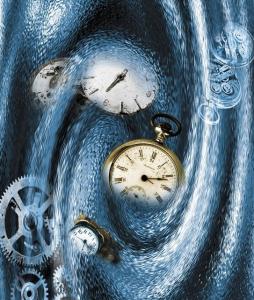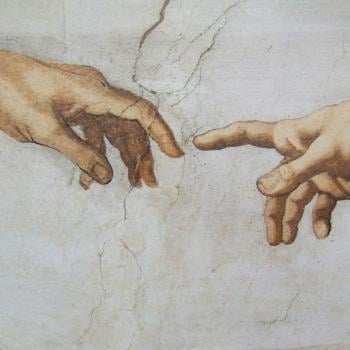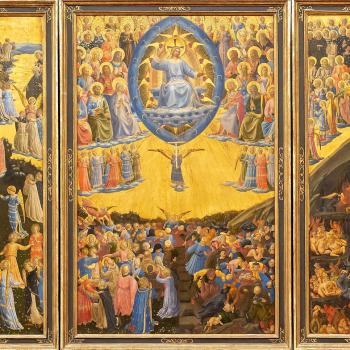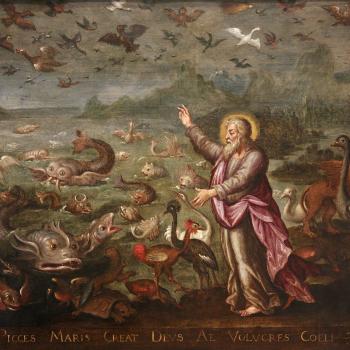
We should act with wisdom, doing what we can to make things better for all. We don’t have all the time in the world to do so. Our lives are short. Therefore, we should take the time we have to do those things which we believe are the most important to do. “Look carefully then how you walk, not as unwise men but as wise, making the most of the time, because the days are evil” (Eph. 5:15-16 RSV). This doesn’t mean every moment, every waking breath we take, should be used to make some significant, earth-shaking action. We have limits to what we can do, and we should take that into consideration as well. We need times of rest and relaxation, for without them, we will burn out. We need to take some time to relax, to enjoy life. We were given life as a good and so we must make sure we partake of that good for ourselves. And when we do, we will often find, when we have such moments of rest, we start contemplating what we have done, and use that reflection to understand better what we have done right and what we should be doing next. If all we do is act without taking times to reflect in this manner, no matter how much wisdom was used to get us to act, eventually we will end up becoming foolish, as we will not be able to adapt so easily to our ever-changing situation in life.
It is important, therefore, we realize that there is something for us to do. Our lives are important. We might live in “evil days,” because there is always something bad happening in the world around us, but we should not use that as an excuse to do nothing. Rather, it should inspire us to push on, to reform things, both in our own lives and in the world at large. Thus, far from having us retreat from the world, seeing the evil which is done in it should have us look even more to the world at large and to do what we can to heal the harm such evil has caused to it. It is our duty to do so. We are not to live our lives selfishly, looking only to satisfy our inordinate pleasures, ignoring the consequences of our actions, but instead, we are to look to ways we can help establish long-lasting peace and happiness, both in ourselves, and in the world around us. Jesus, therefore, provided us a parable, pointing out, though we have a limited time in which to act, the consequences of those actions will follow us, even beyond time itself. Once we understand this, we should know that we should do what we can to prepare for our eternal existence by using our time wisely:
And he told them a parable, saying, “The land of a rich man brought forth plentifully; and he thought to himself, `What shall I do, for I have nowhere to store my crops?’ And he said, `I will do this: I will pull down my barns, and build larger ones; and there I will store all my grain and my goods. And I will say to my soul, Soul, you have ample goods laid up for many years; take your ease, eat, drink, be merry.’ But God said to him, `Fool! This night your soul is required of you; and the things you have prepared, whose will they be?’ So is he who lays up treasure for himself, and is not rich toward God.” (Lk. 12: 16- 21 RSV).
If all we do is look for ways by which we can take from the world all we want, hoarding things for the future, eventually the future will come and will not be able to use all we have collected. We will die before we use it all. And yet, because of the way we hoarded things, we will have taken away from many the opportunity to enjoy or use the things we have removed from the universal distribution of the goods. This could lead to many people suffering unjustly because of our own selfish actions. Thus, not only will hoarding in such a way not do us any good, it can become the source of great evil in the world, and the more evil we do, the more we will have to pay the price for that evil, either later in our temporal lives, or in the life which is to come. If we want to prepare for the future, to lay up treasures which we can and will use, we must look for those treasures which we can possess in ourselves without hurting others. What are those treasures? The various virtues of the soul. The more we have of them, the more we will find ourselves becoming more and more like God, with all the glory that likeness brings.
Everything we do will be revealed in the light of God’s glory. The more we look to the world with selfishness, causing pain and sorrow to others, the more we will have to face the consequences of our actions. In the eschaton, we will not be able to hide from ourselves, or others, what we have done. The truth will be made known. Wisdom, realizing this, will encourage us to use our time wisely and make things better for all. “Take no part in the unfruitful works of darkness, but instead expose them. For it is a shame even to speak of the things that they do in secret; but when anything is exposed by the light it becomes visible, for anything that becomes visible is light” (Eph. 5:11-13 RSV). And of course, the more we engage grace, and the light which it provides, the more we will find that we are true to ourselves, to the goodness which is inherent in us, allowing that goodness to grow and mature. Indeed, we will find that our innate goodness is but a starting point, and the more we let it grow and develop, the better we can become. We can truly store treasures in heaven without harming anyone else, indeed, the more we help others, the more treasure we will have. But if we ignore the goodness which is already within, and the way it could and would inspire us if we but listen to it, we can be said to be going against our conscience, and in this way, find ourselves sinning, causing harm at least to ourselves, if not many others as well. The more, then, we contend against that innate goodness, the more we find ourselves becoming less and less, as we become corrupted by evil, and insofar as we know and realize it is evil and we continue to embrace such evil, we sin. “For evil is not some sort of a substance, nor yet a property of a substance, but an accident, that is to say, a deviation from the natural into the unnatural, which is just what sin is.”[1]
As sin takes us away from what is natural to some perversion of our own good nature, the more we sin, the more we harm ourselves, causing ourselves more and more pain and sorrow. We might not notice it at first. The pain and sorrow might be something which comes later, much later. But it will come as we have to face the consequences of our actions. This is why we are to take the time to consider our actions, and engage them with wisdom. Then, we will wisely engage the good which has been given to us, not just from legalistic exploration of what should or should not be done, but from our conscience. We should follow where our conscience directs us, for if we do, it will make sure end up with long-lasting, indeed, eternal happiness and satisfaction, instead of the moment of pleasure which sin offers before that pleasure becomes a thing of the past, leaving us suffering in its demise.
[1] St. John of Damascus, “On The Orthodox Faith” in Writings. Trans. Frederic H. Chase, Jr (New York: Fathers of the Church, Inc., 1958), 387.













